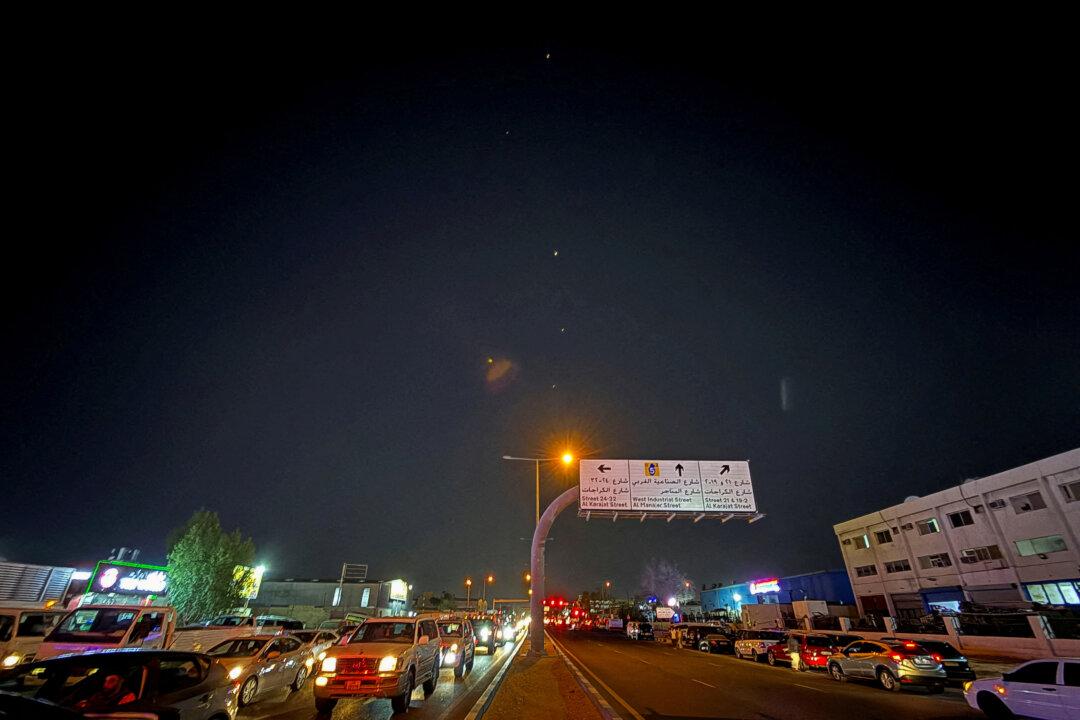Commentary
Iran launched missiles at a U.S. base in Qatar on June 23. You can be sure that the U.S. soldiers there are getting their chem-bio suits ready just in case. The mullahs in Tehran are asking for trouble and obviously not acting in the best interests of their people. They are undeterrable rogues, because they are unaccountable to voters. And it shows. The mullahs, like Hamas, are risking the destruction of their communities for no good reason at all.
Given the threat of rogue states with nuclear weapons, there’s increasing talk of democracies like Japan, South Korea, Taiwan, Ukraine, Poland, and Germany seeking their own nuclear weapons. They want to deter authoritarian states like China, Russia, Iran, and North Korea. The former are responsible and developed democracies. The latter are not. The former have a right to defend themselves. Unelected regimes arguably do not. They prey on their people, rather than protect them.
Dictators should be challenged until removed from power. Like terrorists, the normal recognition provided to sovereign democracies ought not to apply. This is why Iran’s pleas at the United Nations for assistance are being met with a measure of insouciance. By developing nuclear weapons and pricking Israel with their proxies, the mullahs picked the fight. They are unanswerable to voters and terroristic. Therefore, they cannot be trusted with sovereignty, much less nuclear weapons.
The Chinese Communist Party (CCP) and North Korea are much the same. In 2016, President Donald Trump proposed that to deter these and other threats, Japan and South Korea obtain their own nuclear deterrents. It’s a good idea, and these two democracies do need an independent deterrent to protect themselves. If the People’s Liberation Army attacks these countries, U.S. voters may not want to risk nuclear war by defending them. Probably due to this risk, Japan reportedly has had a “bomb in the basement” since around 1985. Tokyo has the parts for a nuclear weapon, which can be assembled within about six months if necessary.
Unfortunately, a nuke alone is insufficient to fully deter the CCP and other rogue regimes listed above. Like terrorists, they may not be directly deterrable at all. They care more for their own hold on power and extremist ideologies than for the well-being of their people. Their power increases through manufacturing an enemy abroad. Their lack of care for human life means that the risk of nuclear weapons hitting their cities is an insufficient deterrent in their calculus over whether or not to attack a nuclear weapons state.
Rogue terrorists and dictators may also be led to believe—wrongly, and despite the history of Dresden, Tokyo, Hiroshima, and Nagasaki—that democracies are less willing than a dictator to ruthlessly destroy an enemy in the context of an existential war. Some democratically elected leaders, who forgot that international laws and norms are typically ignored during the rage and passion of existential wars, might also believe this, until the existential war is upon them. In Gaza and Iran, Israel and the United States are still playing by the rules and trying to avoid civilian casualties. But as soon as a democracy’s very existence is threatened, it will become just as ferocious against the enemy as many dictators.
The threats of terrorists and dictators need not be nuclear or launched with the latest missiles. Chemical, biological, or radiological weapons deployed by drones on trucks or containerized cargo could be sufficient to threaten mass casualties and leverage major gains through negotiations under duress. Imagine a dictator or terrorist holding a city like Honolulu or San Francisco hostage with threats of a weapons of mass destruction (WMD) strike. That rogue might believe that it could get billions of dollars on an annual basis for such a threat. Ukraine has demonstrated that these asymmetric means are powerful, even against a superpower’s nuclear-capable bombers. Regardless of how many high-tech weapons the United States defeats in Iran, the mullahs of Tehran could still be able to retaliate with WMD if they use unconventional means.
Dictators are willing to risk more because they are unaccountable to voters. They care less about their people than democracies care about our voters. Politicians in democracies, unlike dictators, are conditioned from their start as city councilmen to care about the people. At the very least, they have to fake it. The same is not true of dictators, who more often rise by inspiring fear in their adversaries, including when the dictators got their start as small-time bureaucrats.
Due to this difference, authoritarians could believe that democracies will fold first, even if the autocrats are bluffing and democracies are not. That misperception by a rogue could lead to war. This means that Iran’s most powerful weapons—most certainly any WMD—must be proactively disabled if democracies are to fully provide for their security in the future. This is what Israel and the United States are doing in Iran right now, and which will no doubt escalate after Iran’s latest attack on U.S. troops.
Civilians around the world cannot be safe while authoritarian countries have WMD, and while the misperception—stemming from the lack of freedoms in their society—that democracies are soft prevails. The danger is not only to democracies, but to civilians in the authoritarian countries themselves, who would suffer in case of war. Until all WMD is disabled in Russia, China, and North Korea, nobody is safe.
Dictators should democratize or relinquish their WMD. That could be a new Trump doctrine. Like nuclear terrorism, the combination of dictators and nukes is just too dangerous and unaccountable to let stand. Nothing less than an ultimatum of “democratize or disarm” is necessary for a lasting peace.





